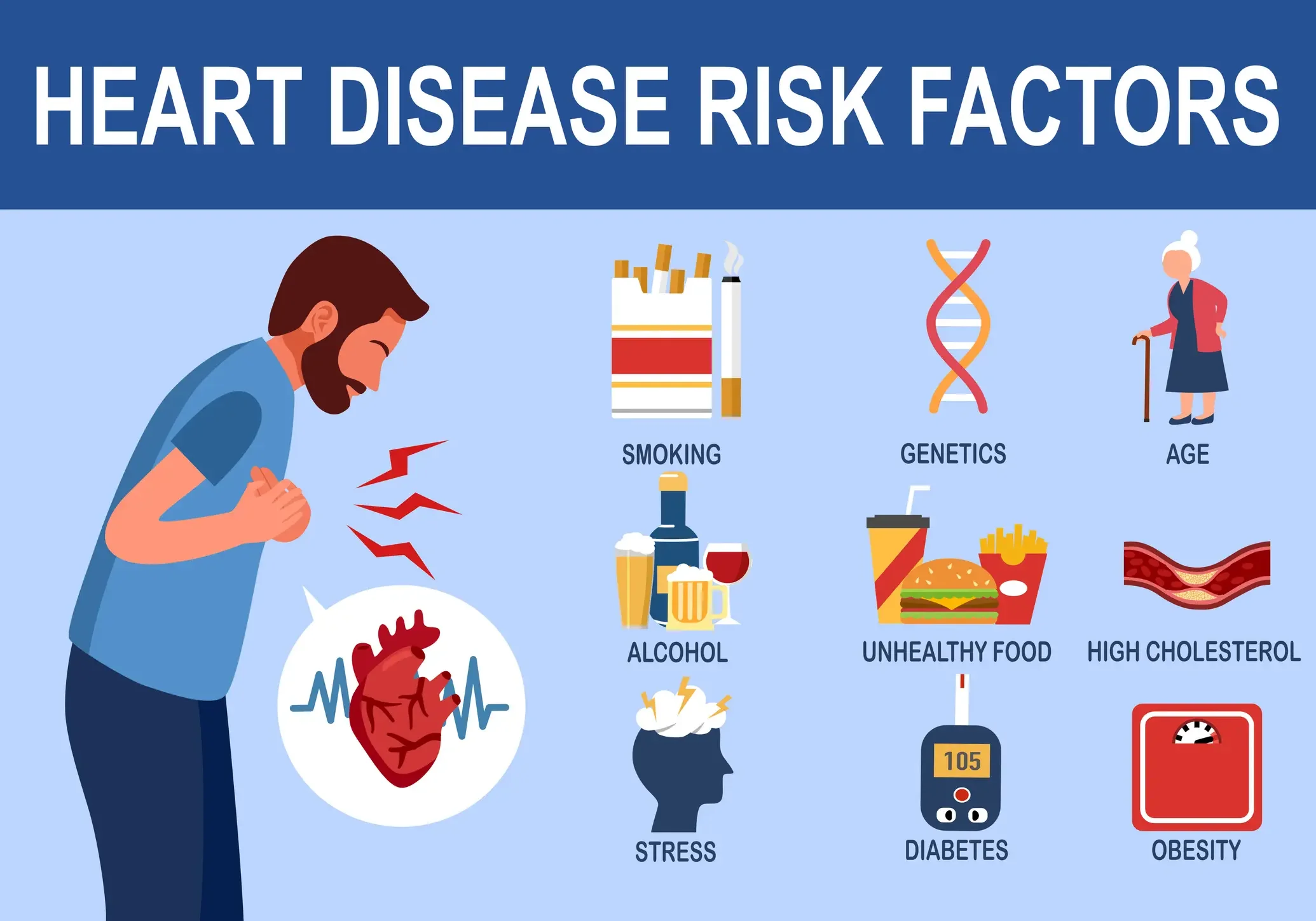Cardiovascular Health & Root Cause Inflammation
Cardiovascular disease is the leading cause of death worldwide, but it often develops silently over time due to chronic inflammation, poor metabolic function, oxidative stress, and lifestyle habits. From a functional medicine perspective, heart disease is not just about cholesterol—it’s about uncovering the root imbalances that drive arterial damage, inflammation, and poor circulation.
Rather than masking symptoms, functional medicine supports the body’s natural ability to repair and protect the cardiovascular system by addressing the deeper “why” behind each imbalance.
What Is Cardiovascular Dysfunction?
Cardiovascular dysfunction occurs when the heart and blood vessels cannot efficiently deliver oxygen and nutrients to the body. This can result from issues like plaque buildup in the arteries (atherosclerosis), high blood pressure, oxidative stress, or poor endothelial function. Over time, these issues can lead to heart attacks, strokes, arrhythmias, or heart failure.
Functional medicine focuses on early detection and prevention—often identifying risk factors long before symptoms develop.
Common Types of Cardiovascular Conditions
Some of the most commonly seen cardiovascular concerns include:
High Blood Pressure (Hypertension): Often driven by inflammation, stress, poor kidney function, or insulin resistance.
Atherosclerosis: The buildup of plaque in the arteries that reduces blood flow and oxygen delivery.
Elevated LDL or Low HDL Cholesterol: Can signal poor liver function, inflammation, or poor fat metabolism.
High Triglycerides: Often linked to poor blood sugar control or a high-refined-carb diet.
Arrhythmias or Irregular Heartbeat: May be connected to nutrient deficiencies, stress, or electrolyte imbalance.
Coronary Artery Disease: A result of progressive inflammation and plaque buildup in the heart’s arteries.
Signs and Symptoms of Cardiovascular Issues
Heart-related symptoms can be silent for years. Early signs of cardiovascular dysfunction may include:
Fatigue or shortness of breath during mild activity
Chest tightness or palpitations
Dizziness or lightheadedness
High blood pressure
Cold hands and feet (poor circulation)
Swelling in the legs or ankles
Headaches or nosebleeds (related to hypertension)
Erectile dysfunction (can be an early warning sign in men)
Poor recovery after exercise
Cardiovascular Health in Women
Heart disease often presents differently in women and may be underdiagnosed. Functional medicine helps identify subtle warning signs like:
Fatigue or anxiety without a clear cause
Shortness of breath instead of chest pain
Sleep disturbances
Hormonal shifts (menopause) affecting cholesterol and vascular health
Inflammation or autoimmune components (e.g., lupus, Hashimoto’s)
Cardiovascular Health in Men
Men are often more likely to experience “classic” heart disease symptoms but may ignore early warning signs. Common presentations include:
High blood pressure or cholesterol
Erectile dysfunction (linked to vascular health)
Exercise intolerance
Belly fat and insulin resistance
Family history of heart attacks or strokes
What Causes Cardiovascular Dysfunction?
Cardiovascular disease is a complex condition often caused by a combination of metabolic, inflammatory, and lifestyle triggers. Functional medicine helps uncover root contributors such as:
Chronic inflammation and oxidative stress
Insulin resistance and blood sugar dysregulation
High refined sugar and processed food intake
Elevated homocysteine or fibrinogen levels
Toxic exposure (heavy metals, plastics, air pollution)
Gut dysbiosis affecting nutrient absorption and inflammation
Poor liver detoxification
Deficiencies in magnesium, CoQ10, omega-3s, or B vitamins
Chronic stress and poor sleep
How Functional Medicine Supports Heart Health
Functional medicine offers a comprehensive, preventive approach to cardiovascular health by identifying and reversing root imbalances. Personalized care may include:
Advanced lipid and inflammation testing (hs-CRP, homocysteine, Lp(a), ApoB)
Blood sugar and insulin monitoring
Nutrition strategies to reduce inflammation and stabilize blood sugar
Targeted supplements (e.g., magnesium, CoQ10, omega-3s, garlic, nattokinase)
Mitochondrial and endothelial support
Detoxification support to reduce vascular toxins
Exercise programs tailored to cardiovascular resilience
Stress reduction techniques to balance blood pressure and cortisol
Note: Functional medicine does not replace cardiology care but can powerfully complement it by improving the underlying terrain in which heart disease develops.




